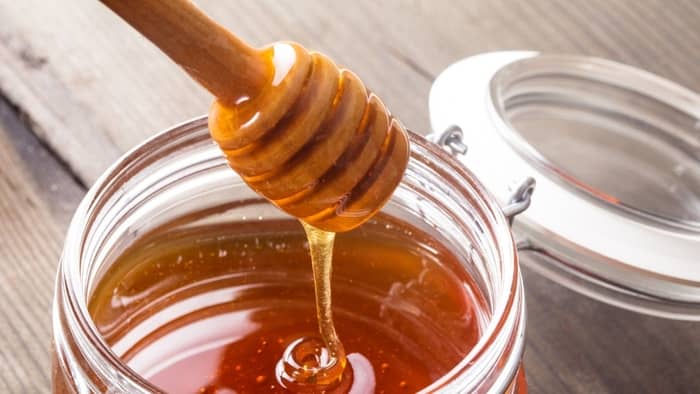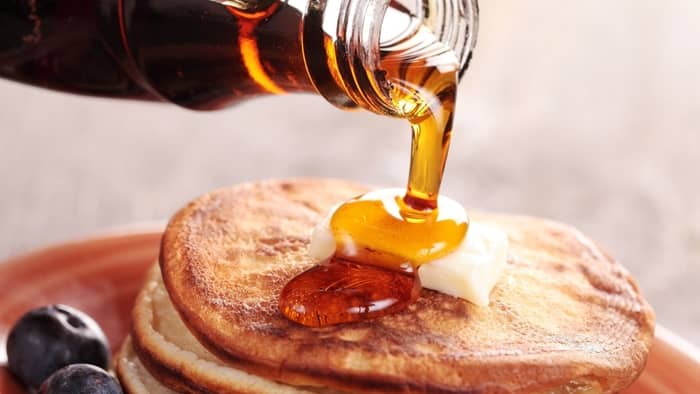Last Updated on September 3, 2021
Today we’re going be answering the question: does barley malt contain gluten? We’ll be looking at the different varieties of barley malt that you may come across and what they are. And more importantly, whether they’re suitable for a gluten-free lifestyle.
What Is Barley Malt?
Malt is made from a grain. The grain can be corn, rice, wheat, or barley. However, barley is the grain most commonly used. The grain is soaked, sprouted, and dried. This is the malting process. You’ll often see barley malt as a flavoring agent or in a brewery, for making products such as beer. It’s flavor is sweet, nutty and quite honestly, delicious!
Is Barley Gluten-Free?
No, barley is not gluten-free. Barley is one of the main grains to avoid when following a gluten-free diet (along with wheat, rye, oats etc.). Although it’s in many foods, Beyond Celiac say that it is not a requirement to disclose barley as an ingredient on food/drink labels. This is very worrying and you can read more in the link above.
Is Barley Malt Extract Gluten-Free?
No, it is not gluten-free. It follows the same process as malt for beer brewing. However, before it goes through the fermenting process, it is instead made into barley malt extract. If you see the word malt, it is usually a sure sign it contains barley. Therefore, contains gluten – and is unsuitable. However, be sure to check the label. You’ll find barley malt extract in products such as malt vinegar, beverages such as beer and milkshakes, malted milk, and syrup.
Is Barley Malt Syrup Gluten-Free?
Malt syrup is brown and sticky, and incredibly thick. It’s very sweet and is a good binding agent. However, unlike the previous barley malt we’ve seen, this sometimes can be gluten-free if seen as an ingredient. If it contains less than 20ppm of gluten, legally it is suitable for us to consume. However, if it does not state that it’s gluten-free – it simply isn’t worth the risk.
Why Use Barley Malt?
Barley malt is used for a variety of reasons. These include reasons such as:
- It adds sweetness
- Adds nutritional value
- Increases fiber
- Makes products less bitter
- Speeds up fermentation
What Foods Contain Barley Malt?
You’ll often find malt in a variety of products. Products may include:
- Beer
- Milkshakes
- Cornflakes
- Vinegars
- Rice Krispies
- Chocolate
- Potato chips
Cereals and baked goods are also products you should be keeping an eye out for when it concerns barley malt. It’s important to always check the label as barley malt is sneaky and can be found in the most unexpected foods – such as Lindt chocolate. Lindt has always been one of my favorites and when my diagnosis was new, I was caught out time and time again. I hadn’t even thought to check the chocolate – I just assumed! One thing I took away from that experience – never assume anything is gluten-free.
Granola bars and cereals are important to watch out for. Even if it seems unlikely to contain barley malt – it’s always safest to check.
Gluten-Free Alternatives
Whilst we may not be able to enjoy barley malt – there are plenty of delicious alternatives. You’ll probably not even notice the difference! Wanting to make a malty milkshake at home? Or want to try your hand at a malt loaf? Let’s take a look at what’s on offer.
Sorghum
Undoubtedly, sorghum is the closest substitute you’ll come across for barley malt. It’s extremely sweet, so be sure to use this in moderation when adding to your cooking. It may be hard to come across locally but is easily accessible online.
Honey
Honey is easy to come across, inexpensive and you’ve probably already got some in your pantry. Naturally gluten-free and full of sweet goodness. If you’re looking for a quick, easy alternative – honey is definitely what I’d opt for.

Brown Rice Syrup
It’s not quite as sweet as barley malt, so feel free to add more than usual. However, this is a far healthier alternative. It doesn’t add to many calories and is great for blood sugar levels (in comparison to barley malt, anyways!). The Biona Organic Brown Rice Syrup is an easily accessible option – and the best part is, it only includes rice and water.
Molasses
Another option that’s very similar to barley malt is molasses. It’s similar in color and in sweetness. As not to overpower your cooking, try not to use too much – it’s very sweet. It comes in three different varieties, each varying in taste and color.
Maple Syrup
Does maple syrup really need any introduction or explanation? It’s not as thick as barley malt but it is just as tasty. Even writing about maple syrup is giving me a craving for it. Guess I know what I’m doing when I’ve finished writing this article! It’s rich, deep flavor makes it a delicious alternative.

Sugar/Sweetener
Sugar and sweetener is by far the easiest substitute to come across. No, the texture and taste are not the same. But if you’re looking for something to replace barley malt in a recipe and are struggling for ideas – it’s a great option.
Conclusion
To conclude, I hope this article has helped to clear up any confusion over barley malt. If you see the words “malt” or “malt extract”, I would highly recommend avoiding the products. Or get in touch with the manufacturer of the brand, they’ll be able to confirm whether it’s barley malt that has been used. More often that not, it will be. But brands are usually always happy to help.
I’ll be honest, I would really like some gluten-free Lindt milk chocolate truffles. If I could remove barley malt from anything – it would most certainly be those! What would yours be?
If you can think of any other barley malt alternatives, please let me know in the comments below. Sharing is caring!
Read more about: Does Peanut Butter Contain Gluten?

Hi, my name’s Zoë. I’m 28 years old and live in London, UK. I work full time as a freelance writer and critic for West End theatre. Writing has been a passion of mine for as long as I can remember. I spend most of my free time at the theatre, or at conventions. I’m married to the love of my life, and live in a small apartment with my fur baby, Lillie. I run two of my own blogs: No Safer Place and Stage to Page: both of which have won awards. I also have a YouTube channel where I talk about all things stagey.
